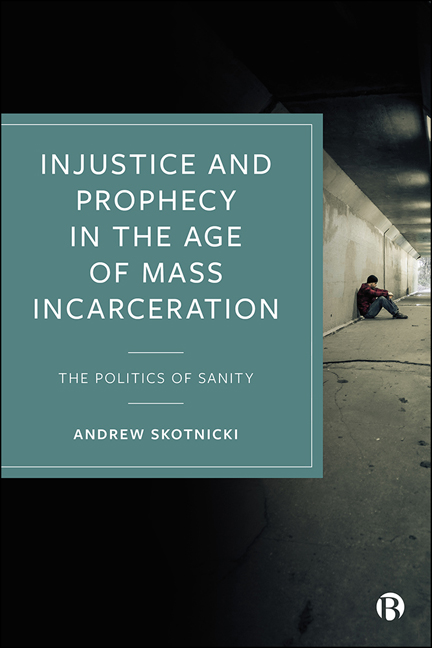Introduction
Published online by Cambridge University Press: 12 October 2022
Summary
There is a social psychological and, often, personal sense of dismay, trepidation, and irritation among the general population when confronted by persons of low status with acute psychological distress or by those with a radical political message. At the same time, detention facilities in nations such as Great Britain and the United States are more and more filled with representatives of these populations.
The pathos and seeming hopelessness of their plight is poignantly captured by George Orwell in the character of the unwitting and helpless revolutionary, Winston, in the novel, 1984. Under torture by the effortlessly composed bureaucrat, O’Brien, Winston is reminded by his tormentor of the cost of resistance to the “sane” directives of the State: “You would not make an act of submission which is the price of sanity. You preferred to be a lunatic.”
Allow me to share a vignette that captures the ubiquitous reality of “lunatics” in penal institutions here and abroad. In the several dozen university classes on the theological and ethical implications of the criminal justice system that I have taught to confined men and women in the jails of New York City and one of its neighboring counties, I always attempt to give the students who accompany me from our main campus an impactful experience on who goes to jail and who does not. One common exercise is to ask the incarcerated students how many in their housing units are either on psychotropic medications or show demonstrative signs of acute psychological and emotional distress. The impact of the instantaneous responses is more visceral than simply numerical: there are forced exhales, eyebrows instinctively raise, heads begin to shake; all affirming that the numbers are striking. The dramatic emphasis of the reactions unfailingly shocks and disturbs the visitors far more than the simple reporting of statistical evidence.
The inevitable question raised by the preceding experience among my students and, hopefully, the reader— hinted at in the Orwell quote— is part of what I wish to explore in this volume: Why do we punish so many of those determined to be mentally ill? Suffice to say for now that the data fully confirm that the anecdote just related accurately portrays their overwhelming numbers among the incarcerated population.
- Type
- Chapter
- Information
- Injustice and Prophecy in the Age of Mass IncarcerationThe Politics of Sanity, pp. 1 - 10Publisher: Bristol University PressPrint publication year: 2022



